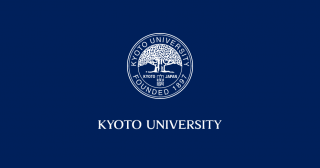On 14 March, Kyoto University's Institute for Integrated Cell Material Sciences (iCeMS) hosted a seminar inviting Prof Jean-Marie Lehn of Strasburg University, a Nobel Prize winner in Chemistry.
Prof Lehn is a founder of "supramolecular chemistry", a field that focuses on molecule collections that form new structures based on weak, reversible bonds. He proposed that molecular architectures and its properties do not depend entirely on chemical bonding, but instead fluctuate according to the aggregation state of molecules. In 1987, Prof Lehn was awarded the Nobel Prize in Chemistry for the development and use of cryptands, a novel molecular architecture to selectively capture ions.
"Supramolecular" chemistry has had a great impact on chemical research in Japan, and has now become one of the strongest research fields in the country. The field has also influenced biochemistry and biology fields; the concept that Protein and DNA are supramolecules, is now a widely accepted notion. iCeMS, as a center that pioneers the integration research of chemistry and cell biology, explained to Prof Lehn the research goals actively pursued at the institute, which was followed by an active discussion on how to improve them.
"I think the combination of material science and biology sometimes become artificial, but iCeMS is a good environment to think differently about your own problem and generate new ideas for fundamental science and its application," said Prof Lehn. "'I will change the world' is a good conviction to have and foster."

Prof Lehn delivering a talk

Researchers and students that conversed with Prof Lehn in the second session

Prof Lehn with an early-career researcher

A moment from from Session 1


Young researchers that exchanged views with Prof Lehn during the first session
About iCeMS
Kyoto University's Institute for Integrated Cell Material Sciences (iCeMS) was selected for the World Premier International Research Center Initiative (WPI program), launched by Japan's Ministry of Education, Culture, Sports, Science and Technology (MEXT) in 2007. iCeMS is the only center in Japan that is creating a new research field that combines cell biology, chemistry, and physics aiming to meaningfully impact the world in which we live. From this new field, many game-changing technologies have emerged, from those that potentially solve environmental problems like cleaning the water we drink and the air we breathe, to those that may advance medicine such as the rejuvenation of brain cells.
About the World Premier International Research Center Initiative (WPI)
WPI is a program launched by Japan's Ministry of Education, Culture, Sports, Science and Technology (MEXT) in 2007. WPI not only provides priority support for projects aimed at creating world-class research, but also strives to revolutionize conventional modes of research operation and administration in Japanese universities. During the 10-year funding period given to each center, various efforts have been made to make this goal a reality. In these director-driven initiatives, English has been made the official language used in all centers, achieving a 30 % ratio of foreign researchers. As of today, WPI centers have produced two Nobel Laureates (Profs Shinya Yamanaka and Takaaki Kajita).
Related links
- Institute for Integrated Cell Material Sciences (iCeMS)
http://www.icems.kyoto-u.ac.jp/en/ - World Premier International Research Center Initiative (WPI)
https://www.jsps.go.jp/wpi/





